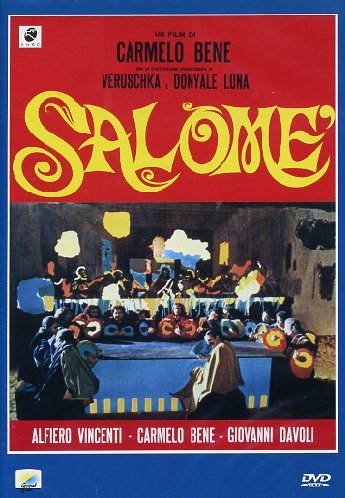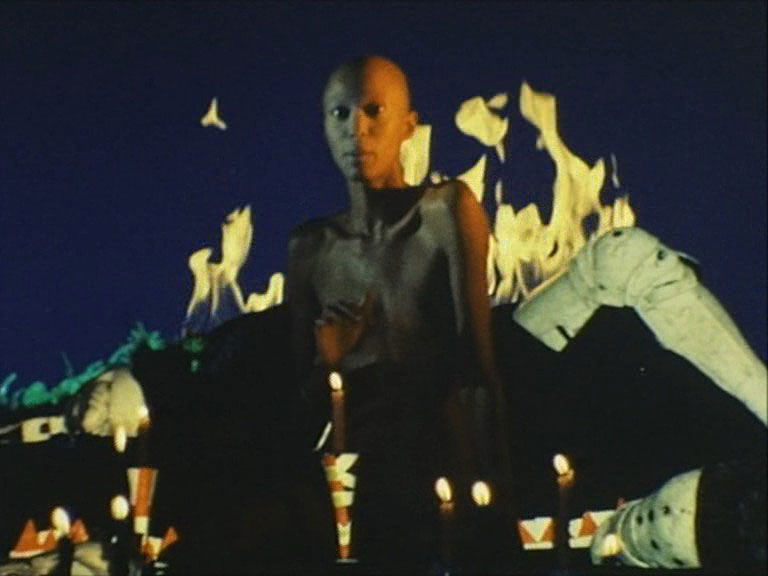[IN DREAMS BEGIN RESPONSIBILITIES: A JONATHAN ROSENBAUM READER]
This is an early, abbreviated draft of an introduction to a proposed collection of mine that has subsequently found a publisher (Hat & Beard Press [Los Angeles]/Invisible Republic [Chicago]). I posted this early draft to use in a workshop that I was conducting at Kino klub Split (June 17-22) in Croatia, based on certain concepts proposed in this book. –- J.R.
So complex is reality, and so fragmentary and simplified is history, that an
omniscient observer could write an
indefinite, almost infinite, number of
biographies of a man, each emphasizing
different facts; we would have to read
many of them before we realized that
the protagonist was the same.
Jorge Luis Borges, 1943
I get a great laugh from artists who
ridicule the critics as parasites and
artists manqués —- such a horrible joke.
I can't imagine a more perfect art form,
a more perfect career than criticism. I
can't imagine anything more valuable to
do, and I’ve always felt that way.
Manny Farber, 1977
First, a few ground rules. Because most of us live in a culture where our marketers also tend to be our preferred epistemologists, editors, and censors, I want to override their usual restrictions that govern collections of this kind by drawing upon my literary criticism and my music criticism (mostly of jazz) as well as the film criticism that I’m usually known for, meanwhile charting some of the potential and actual interactivity between these arts in order to define some of the attributes of my own particular niche-market, at least as I’m defining and addressing it here. Read more
From the Chicago Reader (July 16, 2004). — J.R.

It’s much more of an action flick than either Metropolis or Blade Runner, but there’s a provocative and visionary side to this free adaptation of Isaac Asimov’s SF classic that puts it in the same thoughtful canon. The story is set in Chicago in 2035, and the cityscape, designed by Patrick Tatopoulos, is futuristic yet Victorian around the edges. Built into the mystery plot are reflections about robots as extensions of human will that build up to a wide-ranging but unpreachy critique of everything from corporate malfeasance to the Patriot Act. Will Smith plays an old-fashioned homicide cop investigating the ostensible suicide of a scientist; Bridget Moynahan is an expert in robot psychology. Alex Proyas (The Crow, Dark City) directs a script by Jeff Vintar and Akiva Goldman that’s lively enough to justify a few hokey flourishes. R, 100 min. Burnham Plaza, Century 12 and CineArts 6, Chatham 14, Crown Village 18, Davis, Ford City, Gardens 1-6, Golf Glen, Lawndale, Lincoln Village, Norridge, North Riverside, River East 21, 62nd & Western, Village North, Webster Place. Read more
From Oui (June 1974). –- J.R.



Salome. Meet Carmelo Bene, a vital figure in the Italian avant-garde
whose introduction to American moviegoers is long overdue. Salome,
freely adapted from the Oscar Wilde play, is the latest and perhaps the
most ravishing of his lavish camp spectacles. (Earlier efforts include
Our Lady of the Turcs, Don Giovanni, and One Hamlet Less.)
The title role is played by Veruschka –- the high-fashion model who
writhed under the photographer hero at the beginning of Blow-Up
–- appearing bald, nude, and zombielike as she steps out of the water,
decorated from head to foot with multicolored gems. Bene as Herod
upstages everyone with his hysterical nonstop monologues and
Woody Woodpecker laughs. Visually, it’s a riot of extravagant colors
(fluorescent costumes, Day-Glo sets) and opulent debaucheries
flashing by so quickly that everything remains in delirious flux, and
none of the fancy scenic splendors stands still long enough to be
contemplated. Try to imagine Orson Welles’ Macbeth colored in
with a Fellini paintbox, recut by Kenneth Anger, accompanied by
Schubert’s Unfinished Symphony and the Beer-Barrel Polka,
and you’ll get a fraction of a notion of Bene’s giddy madness.
Depravity, thy name is Salome. Read more




